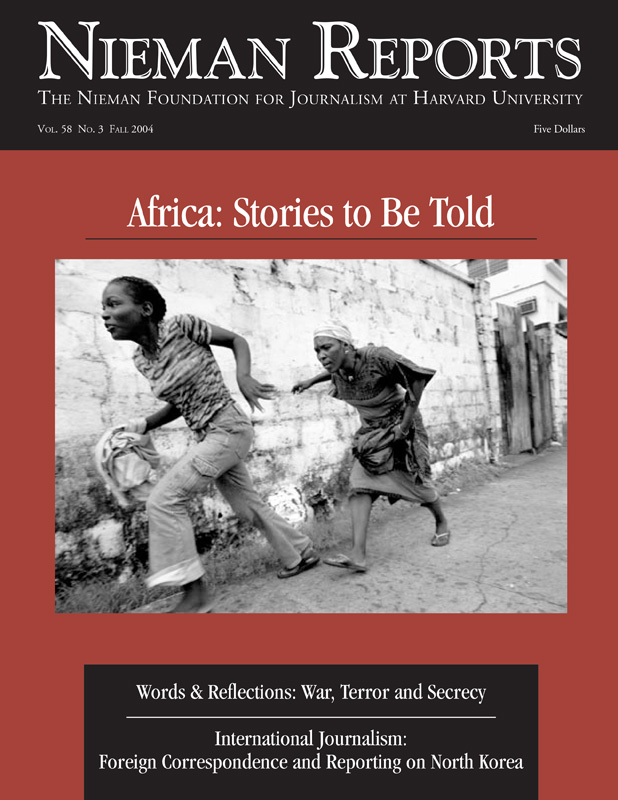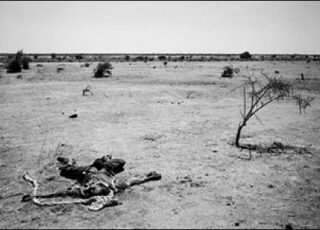ISSUE
Fall 2004

Africa: Stories to Be Told
Africa is portrayed in the Western media by its extremes, observes Ugandan journalist Charles Onyango-Obbo, a managing editor with the Nation Media Group in Nairobi, Kenya. Stories about its civil wars, human rights abuses, government corruption, disease and poverty abound, but these have been joined by Western reporting that, in Onyango-Obbo’s opinion, can be too willing to celebrate the promised reforms of emergent leaders for whom greater journalistic scrutiny should be applied. The result: “… the leadership in Africa became not only complacent, but also used the flattering international coverage to muzzle internal critics and vigorous independent reporting ….”
Articles
International Journalism Journalist’s Trade
Transforming Journalism as Democracy Emerges
‘Ten years into democracy, many journalists are struggling to redefine their relationship to government.’
September 15, 2004
International Journalism Journalist’s Trade
Revealing Lives Behind the Statistics
‘We would work to capture and convey the human dignity not often found in stories painting statistical portraits.'
September 15, 2004
